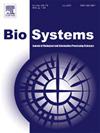超越基因组:生物密码和能量约束的多尺度、基于主体的分类学。
IF 1.9
4区 生物学
Q2 BIOLOGY
引用次数: 0
摘要
这项工作批判性地考察了控制生命系统的组织原则,并介绍了为理解生命的计算方法铺平道路的新兴规则。它挑战了现代合成的传统假设,该假设声称生命密码仅存在于DNA,遗传网络和表观遗传学中。相反,我们认为维持生命所必需的信息分布在多个尺度上。从控制论和机器学习等不同的框架中,我们提出了一个关于这个基本问题的新视角。我们从探索生命的复杂性开始,提出了一个深思熟虑的生物密码的初步分类,同时认识到替代框架的潜力。这种解释整合了约束封闭和基于主体的建模等概念的推测性思想,将生命的层次结构框架为稳定和探索之间的动态张力所支配。在此基础上,我们分析了生物密码的组成规则和性质,揭示了它们在不同尺度上的层次和因果关系。我们强调细胞作为基本控制论代理的作用,并讨论该框架如何有助于理解细胞分化和协作等自然现象。这一观点的理论含义强调了涌现和自上而下的相互作用在促进复杂性方面的重要性。我们认为,分布在多个尺度上的信息对于维持生命是必要的,但不是充分的,因为生命系统是开放和动态的,从根本上依赖于环境的相互作用,受熵、质量和能量交换的影响。此外,任何形式的生命都是一个物理信息处理系统,这进一步强调了结构与环境之间复杂的相互作用。我们提出,可用能量不仅维持生物系统的自创生,而且其中一部分能量还以一种探索性的方式驱动它们的适应和进化。最后,我们给出了一个实际的例子,并概述了该方法的未来方向。具体来说,我们说明了我们的框架如何推进对蛋白质折叠因子的理解,特别是在破译它们的调节动力学和与伴侣和细胞器的相互作用方面。通过将理论概念与实际例子联系起来,这项工作旨在为分析和操纵复杂的生物系统提供一个框架,对系统生物学和人工智能等领域具有潜在的影响。本文章由计算机程序翻译,如有差异,请以英文原文为准。
Beyond the genome: A multi-scale, agent-based taxonomy of biological codes and energetic constraints
This work critically examines the organizational principles governing living systems and introduces emerging rules that pave the way for a computational approach to understanding life. It challenges the conventional assumption of the modern synthesis, which claims that the code of life resides solely in DNA, genetic networks, and epigenetics. Instead, we argue that the information essential for sustaining life is distributed across multiple scales. Drawing from diverse frameworks such as cybernetics and machine learning, we propose a fresh perspective on this fundamental question.
We begin by exploring the complexity of life and propose a thoughtfully constructed preliminary taxonomy of biological codes, while recognizing the potential for alternative frameworks. This interpretation integrates speculative ideas from concepts like constraint closure and agent-based modeling, framing the hierarchy of life as governed by a dynamic tension between stability and exploration. Building on this foundation, we analyze the compositional rules and properties of biological codes, uncovering their hierarchical and causal relationships across scales. We emphasize the cell's role as a fundamental cybernetic agent and discuss how this framework contributes to understanding natural phenomena such as cellular differentiation and collaboration.
The theoretical implications of this perspective highlight the importance of emergence and top-down interactions in fostering complexity. We argue that information distributed across multiple scales is necessary but not sufficient for sustaining life because living systems are open and dynamic, relying fundamentally on environmental interactions, subjected to entropy, mass, and energy exchanges. Additionally, any form of life functions as a physical information-processing system, further emphasizing the intricate interplay between structure and environment. We propose that available energy not only sustains autopoiesis in biological systems, but a fraction of it also drives their adaptation and evolution in an exploratory fashion.
Finally, we present a practical example and outline future directions for this approach. Specifically, we illustrate how our framework advances the understanding of protein folding agents, particularly in deciphering their regulatory dynamics and interactions with chaperones and organelles. By bridging theoretical concepts with practical examples, this work seeks to provide a framework for analyzing and manipulating complex biological systems, with potential implications for fields such as systems biology and Artificial Intelligence.
求助全文
通过发布文献求助,成功后即可免费获取论文全文。
去求助
来源期刊

Biosystems
生物-生物学
CiteScore
3.70
自引率
18.80%
发文量
129
审稿时长
34 days
期刊介绍:
BioSystems encourages experimental, computational, and theoretical articles that link biology, evolutionary thinking, and the information processing sciences. The link areas form a circle that encompasses the fundamental nature of biological information processing, computational modeling of complex biological systems, evolutionary models of computation, the application of biological principles to the design of novel computing systems, and the use of biomolecular materials to synthesize artificial systems that capture essential principles of natural biological information processing.
 求助内容:
求助内容: 应助结果提醒方式:
应助结果提醒方式:


